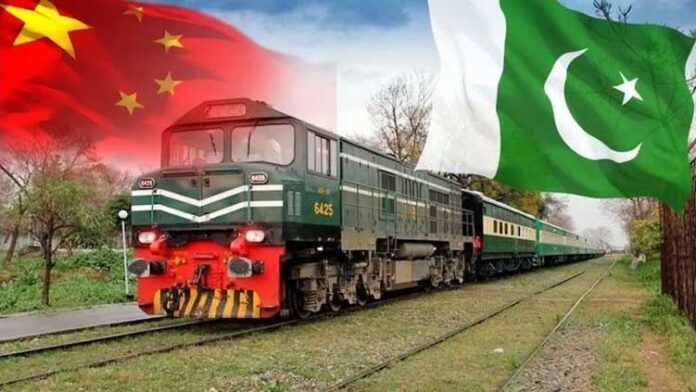Pakistan and China are set to sign an agreement during the third Belt and Road Initiative (BRI) forum in Beijing, which will result in a substantial reduction of $ 3.18 billion in the cost of Pakistan’s groundbreaking Main Line-1 (ML-1) railway project, the sources told.
Under the terms of the newly proposed agreement, the estimated cost of the ML-1 project will be scaled down from its original budget of $9.85 billion to a rationalized and agreed-upon cost of $6.678 billion. This financial rationalization has been conducted within the framework of the CPEC agreement, particularly under Article 10, which was initially signed in 2017 and recently renewed after five years.
The ML-1 project, often touted as Pakistan’s first-ever state-of-the-art railway initiative, will retain its ambitious scope of work, featuring a 1,726 km long track that can facilitate speeds of up to 140 km per hour. This comprehensive upgrade will encompass the construction of 2,096 bridges and culverts, installing 1,300 km of fencing, and incorporating 165/631-grade separation, all designed to create a modern and efficient rail system.
Crucially, these modifications to the project are set to directly impact travel times between major cities. Once completed, the railway will facilitate a journey of 17 hours and 15 minutes between Karachi and Peshawar, promoting rapid and efficient cross-country transportation.
Furthermore, the financial adjustments will specifically reduce costs for various sections of the ML-1 railway, including the Karachi-Multan, Multan-Lahore, Lahore-Rawalpindi, Kalowal-Pindora, and Rawalpindi-Peshawar stretches. The revised project’s timeline is set for completion within nine years, with a total project lifespan of 30 years, mirroring the original design’s objectives.
The decision to update and rationalize the ML-1 project’s cost was a result of extensive discussions between Pakistani and Chinese authorities. The recent meeting of CPEC’s Joint Cooperation Committee (JCC) in May served as a platform for these crucial deliberations.
The project leaders have also indicated their commitment to addressing critical aspects of the railway, including level crossings. Importantly, existing bridges over rivers will not be replaced but instead strengthened through additional work, thereby extending their lifespan by up to 30 years.





3rd class upgrade